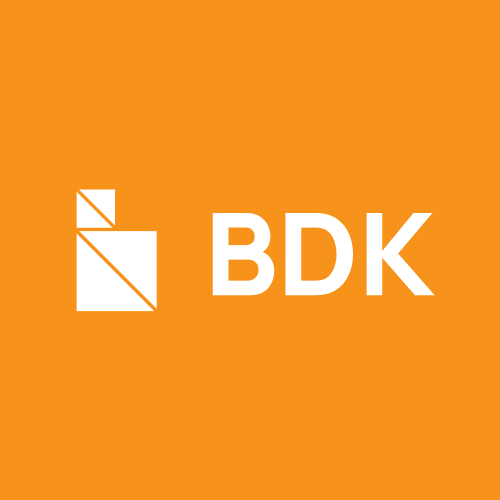The bdk_wallet crate provides the Wallet type which is a simple, high-level
interface built from the low-level components of bdk_chain. Wallet is a good starting point
for many simple applications as well as a good demonstration of how to use the other mechanisms to
construct a wallet. It has two keychains (external and internal) which are defined by
miniscript descriptors and uses them to generate addresses. When you give it
chain data it also uses the descriptors to find transaction outputs owned by them. From there, you
can create and sign transactions.
For details about the API of Wallet see the module-level documentation.
In order to get blockchain data for Wallet to consume, you should configure a client from
an available chain source. Typically you make a request to the chain source and get a response
that the Wallet can use to update its view of the chain.
Blockchain Data Sources
bdk_esplora: Grabs blockchain data from Esplora for updating BDK structures.bdk_electrum: Grabs blockchain data from Electrum for updating BDK structures.bdk_bitcoind_rpc: Grabs blockchain data from Bitcoin Core for updating BDK structures.
Examples
example-crates/wallet_esplora_asyncexample-crates/wallet_esplora_blockingexample-crates/wallet_electrumexample-crates/wallet_rpc
To persist Wallet state data use a data store crate that reads and writes [ChangeSet].
Implementations
bdk_file_store: Stores wallet changes in a simple flat file.
Example
use bdk_wallet::{bitcoin::Network, KeychainKind, ChangeSet, Wallet};
// Open or create a new file store for wallet data.
let mut db =
bdk_file_store::Store::<ChangeSet>::open_or_create_new(b"magic_bytes", "/tmp/my_wallet.db")
.expect("create store");
// Create a wallet with initial wallet data read from the file store.
let network = Network::Testnet;
let descriptor = "wpkh(tprv8ZgxMBicQKsPdcAqYBpzAFwU5yxBUo88ggoBqu1qPcHUfSbKK1sKMLmC7EAk438btHQrSdu3jGGQa6PA71nvH5nkDexhLteJqkM4dQmWF9g/84'/1'/0'/0/*)";
let change_descriptor = "wpkh(tprv8ZgxMBicQKsPdcAqYBpzAFwU5yxBUo88ggoBqu1qPcHUfSbKK1sKMLmC7EAk438btHQrSdu3jGGQa6PA71nvH5nkDexhLteJqkM4dQmWF9g/84'/1'/0'/1/*)";
let wallet_opt = Wallet::load()
.descriptors(descriptor, change_descriptor)
.network(network)
.load_wallet(&mut db)
.expect("wallet");
let mut wallet = match wallet_opt {
Some(wallet) => wallet,
None => Wallet::create(descriptor, change_descriptor)
.network(network)
.create_wallet(&mut db)
.expect("wallet"),
};
// Get a new address to receive bitcoin.
let receive_address = wallet.reveal_next_address(KeychainKind::External);
// Persist staged wallet data changes to the file store.
wallet.persist(&mut db).expect("persist");
println!("Your new receive address is: {}", receive_address.address);cargo testLicensed under either of
- Apache License, Version 2.0, (LICENSE-APACHE or https://www.apache.org/licenses/LICENSE-2.0)
- MIT license (LICENSE-MIT or https://opensource.org/licenses/MIT)
at your option.
Unless you explicitly state otherwise, any contribution intentionally submitted for inclusion in the work by you, as defined in the Apache-2.0 license, shall be dual licensed as above, without any additional terms or conditions.





